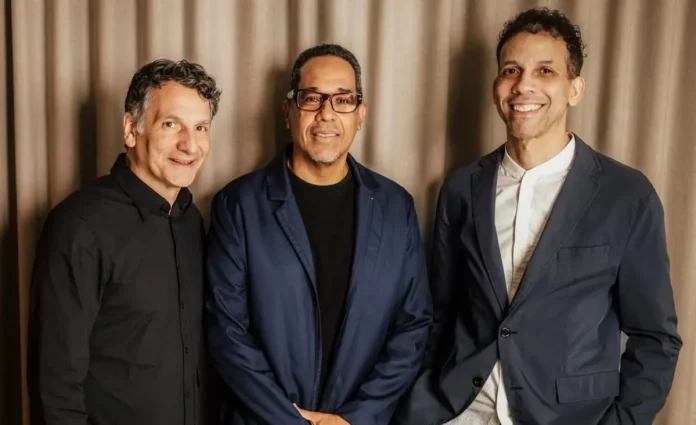Five-thirty in the afternoon might seem a strange time for a jazz-club experience but this music had a cerebral aspect that wouldn’t have been out of place at a lunchtime Wigmore Hall recital. Pianist Pérez is, unsurprisingly, of Latin American origin (Panama, to be precise) and there were almost always elements of LA music in the concert but he is also disposed to flavour his work with astringent elements of 20th century Western harmony – atonal or at least 12-tone elements redolent of the second Viennese school. Bassist Patitucci often supplied more bluesy grooves and riffs but these too were often rarified with odd time signatures or bar lengths. However, such is the skill and empathy of these players (the trio completed by drummer Adam Cruz) that the abstractions typically sounded fairly natural.
The set began with the Whistle Through Adversity, a light-hearted, quirky theme, which was quickly followed by Rediscovery Of The Pacific Ocean, the title indicating that the “discovery” of the Pacific was an entirely European experience, said ocean being familiar territory to the indigenous population. There was an ethnic riff from Patitucci overlaid with Euro-dissonance from Pérez leading to Phrygian-flavoured then blues licks from the bassist, reminding at times of Miles Davis circa 1970. It set the style for the set, which was of whimsical mood and episodic form. In the latter sense the trio was conversational, the narrative passing from player to player. But they were very much in sync too, as evidenced by the unison moments that seemed to come out of nowhere to punctuate what appeared to be an improvised dialogue. To further remind of the old days Pérez took a solo using a 70s-style synth sound.
Alternate Realities was dedicated to the American Marxist and feminist Angela Davis. It had a very polytonal intro passing through a Tynerish moment and on to a section of broken-beat dissonance. The band seemed to be constantly avoiding the expected. It was a kind of chamber jazz. It moved on to some harmonically abstract swing with subtly played drums and cymbals. Overall, it reminded of Chick Corea around the time of The Song Of Singing or Circle.
Elegaic abstraction characterised most of the next piece, Beloved, dedicated to novelist Toni Morrison, but suddenly the trio fired up into a Latin groove in what seemed to be 6/8, demonstrating its suppleness and understated rhythmic power. The penultimate number, Wayne, by Patitucci, began with rubato electric bass with some delay effect for atmosphere. A flavour of Weather Report entered, and Pérez soloed on piano over synth pads, followed by Patitucci improvising with characteristic virtuosity on electric bass (he had played about half the set acoustic, half electric) before Cruz had a section in the spotlight. The set concluded with No Return (not, it seemed, a further Corea reference) where the trio tiptoed through a classical-jazz reverie before the bass introduced a groove, possibly in eleven, and solos ensued.
It had been 75 minutes that required some concentration and which might have been well leavened by closing with something as grounded as the Afro-Cuban charts Pérez played with Gillespie. But that might have been a compromise too far for a trio that seems set on seeking its own course and well equipped to do so.
Danilo Pérez, John Patitucci, Adam Cruz at Ronnie Scott’s, London, 19 March 2024
















